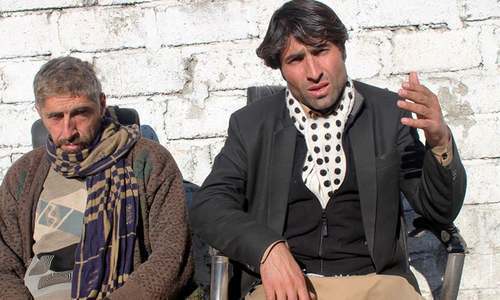We at New Pakistan are saddened by the death of Afzal Kohistani who for years was at the forefront of Kohistan’s fight against honor killings. It was Afzal Kohistan who exposed the 2012 Kohistan video scandal, battled local jirgas, served time for crimes he hadn’t committed and persevered. Kohistani always feared for his life and just a few days ago he was shot dead in the city of Abbottabad,
Kohistani’s death leaves a massive void in Kohistan’s battle against the ‘choar’ custom — a form of ‘honour’ killings peculiar to the area. “Under the choar custom, any man or woman who interacts with the opposite sex becomes liable to death. Kohistani was among four brothers to be declared choar for the offence of sharing a video that spurred the scandal until it became viral. He was the ninth and final victim to meet the tragic end in connection with the Kohistan scandal.”

In an interview he gave the Washington Post, Kohistani said he had “had told officials of receiving “constant death threats” from tribal vigilantes since last July, when four men were arrested and later convicted of killing several of the girls. He had asked for police protection, but none was provided.”
The Human Rights Commission of Pakistan (HRCP) in a statement strongly condemned the murder of Afzal Kohistani. “‘It is highly likely that Mr Kohistani was murdered for his role in exposing a series of suspected ‘honour’ killings that occurred in 2011, after a video – that showed a gathering of young men and women in northern Kohistan singing and clapping to the beat of a wedding song – was posted online. Mr Kohistani’s murder follows only seven months after an FIR was finally filed last August on his petition to the Supreme Court – an FIR that took seven years to be filed. ‘HRCP is outraged at Mr Kohistani’s murder. We are also gravely concerned that this will have a ripple effect on human rights defenders who monitor and report ‘honour’ killings and are reminded of what their work could cost them. ‘HRCP demands that the murder be swiftly and thoroughly investigated and the perpetrators brought to justice. It is also imperative that human rights defenders who bring such cases to light are given effective police protection when they have good cause to feel their life is under threat. Above all, both civil society and the state must take strong measures to eliminate parallel justice systems that enable and find ways to justify the brutal institution of ‘honour’ killing.’”
![]()





